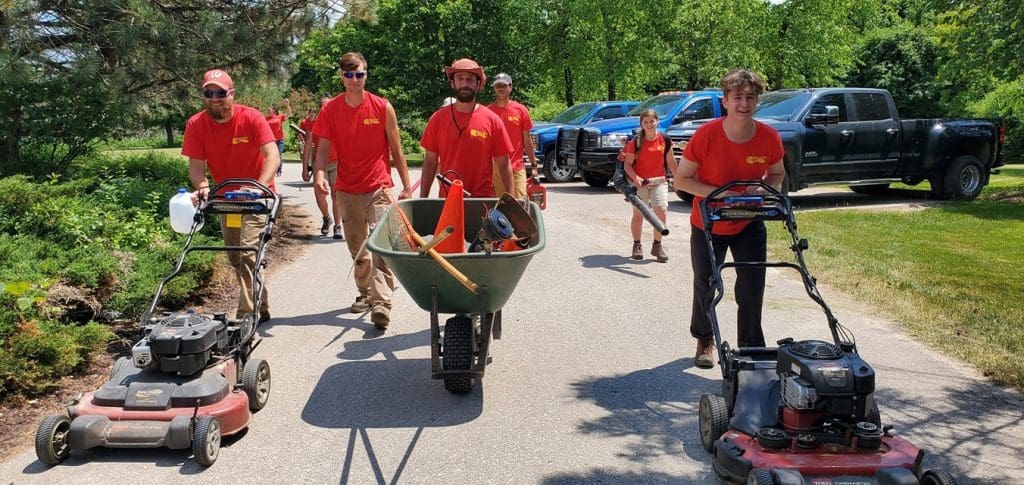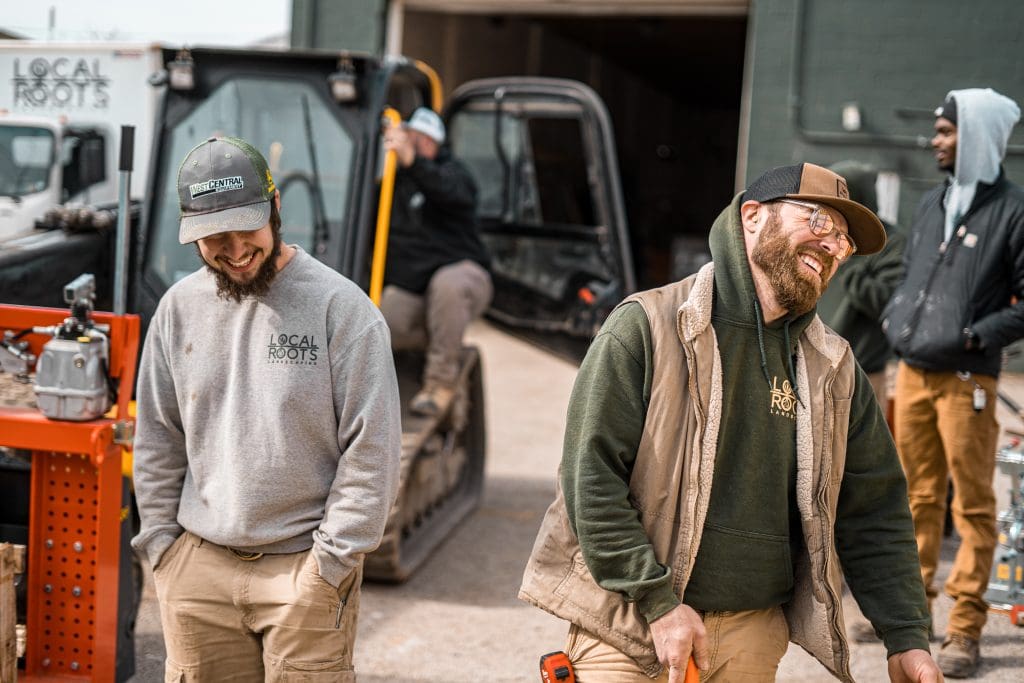
Company culture is one commonly cited reason lawn and landscape companies attract and retain their employees. One aspect of your company culture you should evaluate is how your company cares for your employees’ mental well-being.
While it’s easy to meet the physical needs of your team by keeping them safe and healthy, caring for their mental health is just as important. Landscape company owners say their employees are dealing with everything from anxiety and depression to addiction and insomnia.

“The physical nature of our work can also lead to physical exhaustion and fatigue, which can exacerbate mental health concerns,” says Amber Burkett, benefits manager for LandCare, based in Frederick, Maryland. “We understand this and thus, it is all the more important to prioritize education, awareness, and support for our employees to address these challenges and promote mental wellbeing.”
Overcoming Stigmas
One of the keys to mental health is reducing the stigma around it. Often negative attitudes toward mental health come from a lack of understanding or misinformation. Fostering a space where your team members can be open and honest about their struggles is the first step to creating a better company culture.
“It is not uncommon for people to have a stigma towards mental health, but we try and work to break down those barriers by promoting mental health awareness and providing resources to employees,” Burkett says. “We understand that mental health struggles can affect anyone at any time, and we want to ensure our employees feel supported and empowered to seek help when they need it and know where to go for help.”
Loriena Harrington, LIC, owner of Beautiful Blooms LLC, based in Menomonee Falls, Wisconsin, says they started focusing more on mental health during pandemic and even though it was awkward at first, it gave them permission to be human. Their culture has evolved to where they now have open conversations because her team knows they have a supportive network of people working at the company.
Patrick Murray, managing partner of Local Roots Landscaping, based in Pittsburgh, Pennsylvania, says mental health is something they take seriously and communicate to prospects during the interview process.
He says in many cases, his employees are blown away by how Local Roots treats them and expresses their constant appreciation toward their employees. Their efforts allow team members to go home less stressed and their families benefit as well.
“It’s really cool to see it having, not just a work impact, but literally families are being affected by the way we treat our employees,” Murray says.
While it’s important to have a company where employees feel comfortable opening up, understand that every person is different and may have various preferences when it comes to sharing.
“We have some employees that are extremely private, and we respect that and we don’t expect anybody to share anything,” Harrington says. “It’s just that we give an opportunity for people to speak up and to say what’s on their mind.”

Harrington says that some may be willing to share during a meeting, while others will send her a private message and request a time to meet with her. For those who opt for a private meeting, she will entrust the information with a few others.
“If it only came to me, that doesn’t help the person that sharing it for them to gain understanding, either from management if that’s what they need, or from the entire team,” Harrington says.
Similarly, sometimes Local Roots employees will go to Murray or they’ll talk to their project manager or another team member. He also encourages his employees to ask others on their crew questions beyond “How are you?” such as “Is anything on your mind?” or “You seem a bit down today, did anything happen?” where they might feel more comfortable sharing.
Burkett adds that employees respond well to having access to confidential mental health support through an Employee Assistance Program (EAP), a supportive workplace that promotes empathy and understanding, and a sense of connection and community among the teams.
An Employer’s Responsibility
Murray says employers are responsible for offering a positive, healthy work environment where people are known and have a place to say if there’s something wrong. While owners should be aware of what’s going on with their people, he cautions against stepping into a counselor/therapist mindset. It is better to provide them with professional resources.
Burkett says they promote open communication, education, and awareness about mental health issues, as well as provide access to confidential and personalized mental health support and resources.
“We also work to address the root causes of workplace stress and promote a healthy work-life balance to reduce the risk of burnout and mental health concerns,” Burkett says. “Ultimately, by prioritizing our employees’ mental health, we can create a healthier, more productive, and sustainable workplace.”

Harrington says one of her core purposes is to provide opportunities to people. She says those opportunities aren’t always promotions or a chance to attend an educational seminar. Sometimes, it’s giving them a safe place to work where they can feel like part of a team for eight to 10 hours of their day.
“All business owners are part of the community,” Harrington says. “We serve the community by being good places to work, so that the members of the community have reliable, safe, good employment.”
“For other landscaping company owners looking to improve their efforts on mental health, I would start by educating yourself and your leadership team about mental health issues, so you can create a culture of understanding and support for your employees,” Burkett says. “Make sure you prioritize regular communication with your employees about mental health, whether in emails, newsletters, or in-person meetings. This can help reduce stigma and encourage employees to seek help when they need it. Also, consider offering mental health resources such as an EAP or access to mental health professionals. These resources can be confidential and personalized, which make employees feel more comfortable seeking help.”

